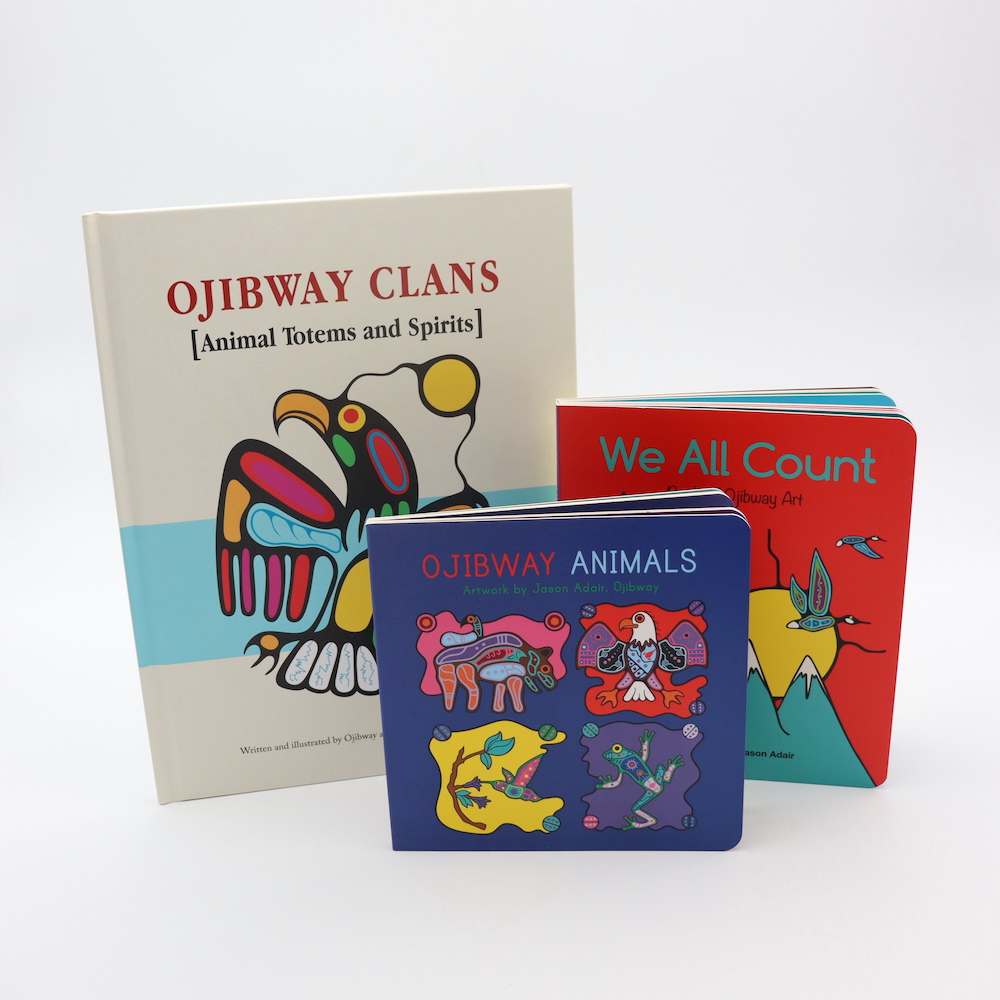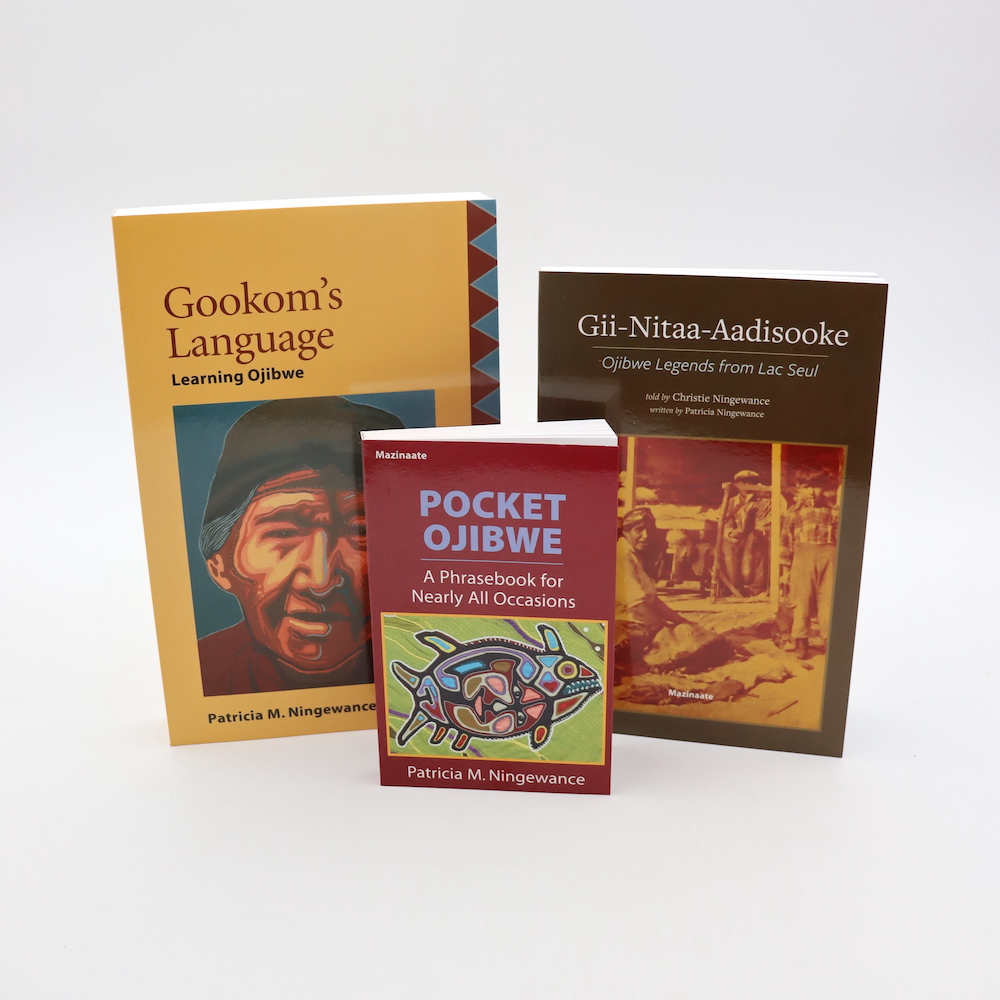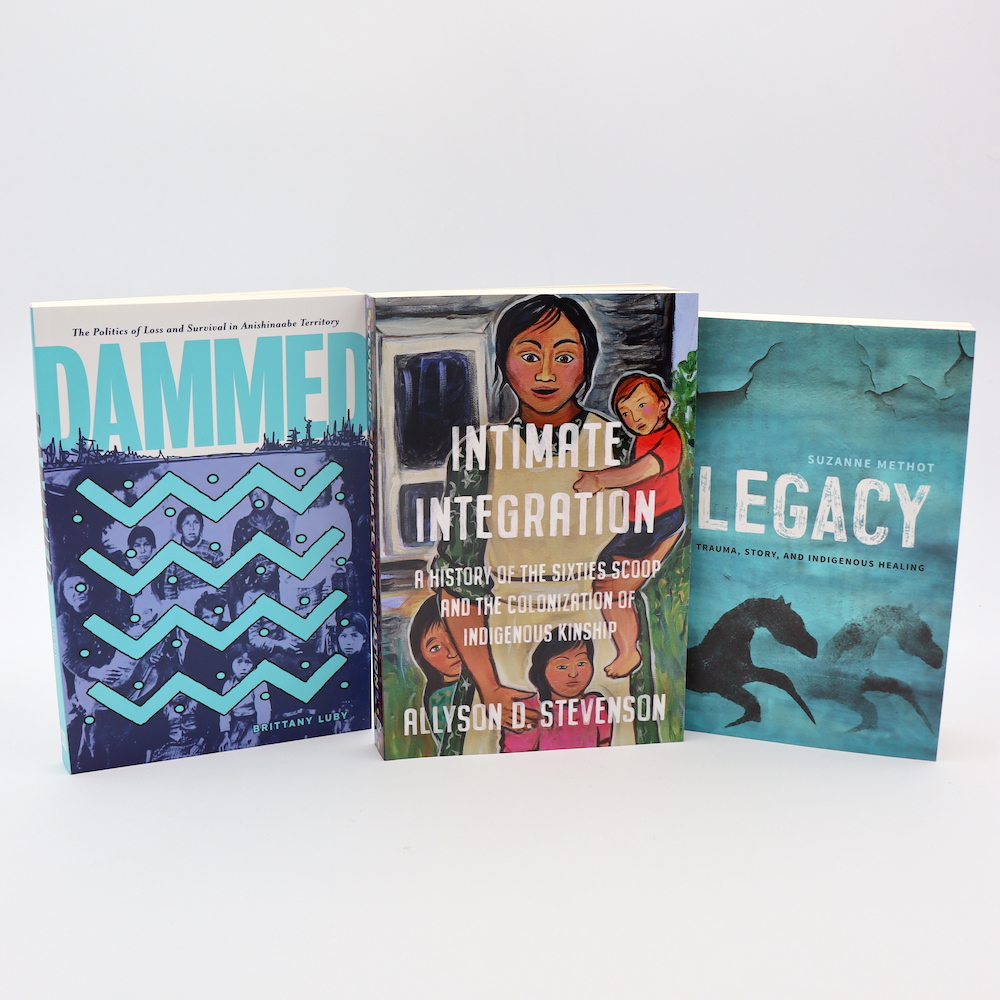Shop the Muse: Indigenous History Month Reads
by Shelby Smith
Today (June 21st) is National Indigenous Peoples Day — a time to celebrate the heritage, diverse cultures, and outstanding achievements of First Nations, Inuit and Métis peoples. June is also Indigenous History Month so we’re featuring a selection of books from Shop the Muse that can help you to learn more about Indigenous history, art, culture, and language.
FOR YOUNG READERS:
Beautiful books for early learning by Ojibway artists Jason Adair and Mark Anthony Jacobson. Each book is printed with soy based ink and water based protective coating, and are made from paper sourced from sustainable forests!
Ojibway Clans: Animal Totems and Spirits
Learn about Ojibway Clans with artist Mark Anthony Jacobson.
$19.95
Ojibway Animals
Learn about the importance of animals in Ojibway culture in this 12 page board book. Each page features a stunning illustration and text by Ojibway artist, Jason Adair. Parents will also love his short excerpt on the back discussing how shape and form relate to Ojibway art.
$10
We All Count: Book of Ojibway Art
Count along with Ojibway artist Jason Adair. This book features stunning illustrations alongside translated animal names. Children will learn number recognition through observation and in context learning.
$10.95


FOR LEARNING OJIBWE:
Three excellent language resources from Patricia Ningewance.
Gookom’s Language: Learning Ojibwe
Ojibwe is also known as Saulteaux and Chippewa and is very similar to Algonquin. The people themselves call it Anishinaabemowin, and it is still spoken in central North America. Use this book to learn the language. Each lesson has vocabulary, dialogues and grammatical explanations. Short stories are added in later lessons. A two-way glossary at the back contains useful vocabulary, expressions and placenames from Canada and the USA.
$40
Pocket Ojibwe: A Phrasebook for Nearly all Occasions
How to speak Ojibwe at airports, bus depots, bush trails, ceremonies, conferences, courtrooms, hospitals, and on the rez.
$20
Gii-Nitaa-Aadisooke: Ojibwe Legends from Lac Seul
19 Legends told by Christie Ningewance and written by her daughter Patricia Ningewance, in Ojibwe and English.
$20
FOR UNDERSTANDING THE INDIGENOUS EXPERIENCE:
Important texts for understanding the lasting impacts of colonialism, and the challenges faced by Indigenous peoples in Canada.
Dammed: The Politics of Loss and Survival in Anishinaabe Territory – by Britanny Luby
Dammed explores Canada’s hydroelectric boom in the Lake of the Woods area. It complicates narratives of increasing affluence in postwar Canada, revealing that the inverse was true for Indigenous communities along the Winnipeg River. Dammed makes clear that hydroelectric generating stations were designed to serve settler populations. Governments and developers excluded the Anishinabeg from planning and operations and failed to consider how power production might influence the health and economy of their communities. By so doing, Canada and Ontario thwarted a future that aligned with the terms of treaty, a future in which both settlers and the Anishinabeg might thrive in shared territories.
The same hydroelectric development that powered settler communities flooded manomin fields, washed away roads, and compromised fish populations. Anishinaabe families responded creatively to manage the government-sanctioned environmental change and survive the resulting economic loss. Luby reveals these responses to dam development, inviting readers to consider how resistance might be expressed by individuals and families, and across gendered and generational lines.

Luby weaves text, testimony, and experience together, grounding this historical work in the territory of her paternal ancestors, lands she calls home. With evidence drawn from archival material, oral history, and environmental observation, Dammed invites readers to confront Canadian colonialism in the twentieth century.
$27.95
Intimate Integration: A History of the Sixties Scoop and the Colonization of Indigenous Kinship – by Allyson D. Stevenson
Privileging Indigenous voices and experiences, Intimate Integration documents the rise and fall of North American transracial adoption projects, including the Adopt Indian and Métis Project and the Indian Adoption Project. Allyson D. Stevenson argues that the integration of adopted Indian and Métis children mirrored the new direction in post-war Indian policy and welfare services. She illustrates how the removal of Indigenous children from their families and communities took on increasing political and social urgency, contributing to what we now call the “Sixties Scoop.”
Making profound contributions to the history of settler colonialism in Canada, Intimate Integration sheds light on the complex reasons behind persistent social inequalities in child welfare.
$33
Legacy: Trauma, Story, and Indigenous Healing – by Suzanne Methot
Five hundred years of colonization have taken an incalculable toll on the Indigenous peoples of the Americas: substance use disorders and shockingly high rates of depression, diabetes, and other chronic health conditions brought on by genocide and colonial control. With passionate logic and chillingly clear prose, author and educator Suzanne Methot uses history, human development, and her own and others” stories to trace the roots of Indigenous cultural dislocation and community breakdown in an original and provocative examination of the long-term effects of colonization. But all is not lost. Methot also shows how we can come back from this with Indigenous ways of knowing lighting the way.
$24.95
All books are available for curb-side pick-up from the Lake of the Woods Museum. Please call 807-467-2105 to place your order and schedule pick-up.
Did you know?
Kenora was once named Rat Portage. The name came from the Anishinabe name of the local portage site, which was Wauzhushk Onigum, which meant, “portage to the country of the muskrat”.
